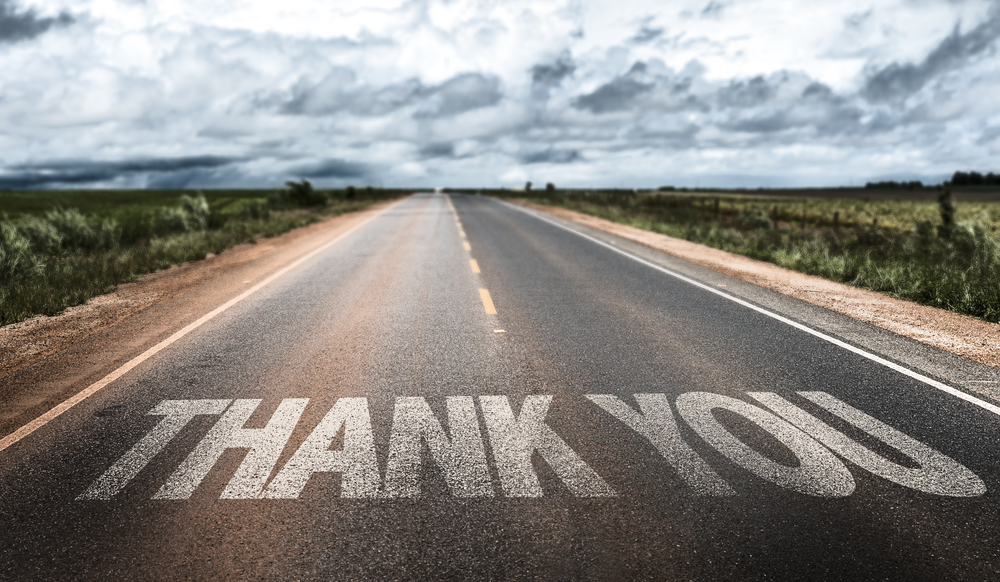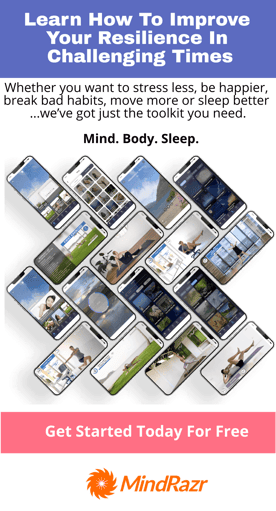Coping In Challenging Times
If somebody had asked you just a month ago, what you would be doing right now, my guess is that you would have replied with something very different from what you are actually doing. The current pandemic of Novel Coronavirus has been a lesson for humanity in how quickly circumstances can change. Certainly in Australia, and no doubt all over the world, individual lives have been disrupted, businesses have been thrown into chaos, and communities have had to rapidly change the way they operate.
If somebody had asked you in January, what you would be doing right now, my guess is that you would have replied with something very different from what you are actually doing. The current pandemic of Novel Coronavirus has been a lesson for humanity in how quickly circumstances can change. Certainly in Australia, and no doubt all over the world, individual lives have been disrupted, businesses have been thrown into chaos, and communities have had to rapidly change the way they operate.
The negativity bias of the human brain means that it’s quite easy for us to look at a situation like this and immediately get buried in worst case scenarios. Psychologists and anthropologists will tell you that this “negativity bias” has helped humans survive across the ages; however, sometimes it’s not helpful to us.
There is good reason to believe that in several months the world will move past this current very challenging time and we may find that on the other side we have to find new ways of doing things that we previously didn’t give that much thought to. It’s also the case that we can choose to focus our thinking in particular ways and take part in particular activities which can influence not the pandemic itself, but our own personal experience of it.
I want to walk you through a few strategies that we can all use to help us to manage the stress and uncertainty effectively, remain optimistic, manage transitions to different working practices and focus on maintaining the things that will always be most important, regardless of how long this goes on and regardless of who we are, where we live and what we do – our relationships.
Dealing with uncertainty
Uncertain situations are the ones which can derail our thinking if we don’t take care. This is due to the involvement of the “limbic” system in the brain. It can be thought of as the emotion and memory processing system and tends to take over in times of crisis and uncertainty and direct us to actions which are designed to keep us safe and survive. The other side of this is that the “rational” part of the brain tends to become less active and defer to the “limbic”.
There are several things that we can do which will help us to navigate this. Firstly, recognise what is inside your control and what is outside your control. For example if your government has directed you to remain indoors, you cannot control that directive. But you can control your experience of being indoors for an extended period of time. Secondly, focus on “the best of what can be”. This is clearly a choice to focus on the positives in the situation, rather than the negatives. Importantly, it doesn’t involve pretending that there is not a downside. Rather it means when you recognise that you’re focused on the downside or the negative, choosing to balance that by focusing on the positive. A simple way to do this is to ask yourself the question “What’s the best thing so far today?” You can also do this with friends and family and encourage all those around you not to lose sight of the small things that still bring joy, whether that’s a laugh with family, a lick from the family dog, saying hello to a neighbour over the fence or down the corridor or simply recognising that right now, you have everything that you need to survive.
You can further help yourself to deal with uncertainty by reflecting on the fact that you have most likely dealt with uncertainty in your life before (though perhaps not on this scale) and question what you did then to manage. Consider what really matters to you today, tomorrow and the day after. Keep making plans. Keep working towards your plans. Avoid getting caught in the trap of avoidance – not doing things for fear that they may not turn out the way that you want them to. As a coping strategy, avoidance breeds its own problems for us. It’s much better to engage with doing something new and perhaps challenging, recognising that it may not go exactly to plan and treating yourself kindly and compassionately and looking for opportunities to learn from the experience.
One of the thinking styles that’s very easy to fall into at times like this is “What if?” Once you ask the first What if? then a number of others will tend to follow and before you know where you are you’ve predicted the absolute worst case scenario you can imagine and you’ve seen yourself right in the midst of it. The approach I use with myself at times like this is to stop at the second “What if?” One “What if?” is reasonable. The second one allows you to have some contingencies. Beyond that it becomes speculation.
Managing working from home
If you’re someone who’s now working from home, it’s likely that you’re currently spending most days in a small space trying to work, perhaps also with a partner who is trying to work and more than likely with children home from school, also trying to work and keep themselves entertained. To describe a situation like this as “challenging” would likely win Understatement of the Year Award.
The more chaotic circumstances become, the more important it is for us to be structured in our daily lives to manage those circumstances. If you are working from home, work to a daily routine and timetable, even if it’s different from what you would usually do in your workplace. Make sure you take regular breaks to interact socially with those close to you and those more distant from you. Take breaks to stand and stretch and move, to take in some fresh air, within the limits of the actions we are all being asked to take to protect everyone in our community.
It’s quite likely that you will experience some increasing conflict and tension with those that you love and care about the most if you’re living in close quarters to each other and are all experiencing disruptions to your usual routine. Recognise that we are all in this together and everyone of us is working hard to adapt to very a new and unusual situation.
Maintaining good mental health and perspective
There are several things that you can do to boost your mental health and to keep your outlook optimistic during these times.
For example, at the end of each day, take the time to make a list of 10 things that you’re grateful for and 10 things you achieved that day. If 10 of each sounds like a stretch, then it may be that you’re looking for big things. If it’s relevant, thank someone directly for what they did. This is a time when it’s important to be thankful for and recognise the really small things that we often overlook in day-to-day life.
Take the time to connect with those who matter to you. Social isolation doesn’t need to mean social disconnection. Call a friend, video-call a friend, and chat to colleagues through the day as you usually would.
The modern day father of Positive Psychology – Professor Martin Seligman – has a great strategy for managing through time such as this. You can read about it here. In summary it involves recognising that your brain is likely to catastrophise the current situation. Now push yourself to imagine the best possible scenario that could emerge here. When you’ve done that, spend some time reflecting on the most likely scenario. Finally, plan for that most likely scenario. This is a great antidote to brains that tend to be naturally overly pessimistic and also inhibits the tendency to ignore the challenging reality and think only about the positives.
A favourite strategy of mine at the moment is to, as far as possible, limit your interaction with news. Obviously it’s important to stay connected to government and public health announcements. These are generally happening on a daily schedule and not more frequently. It can be easy to get caught up in the swell of information that accompanies a rapidly evolving situation. Ask yourself “Does this information help me in any specific way right now?”
A final word about health information and supporting public health initiatives.
I’ve been dismayed at the amount of misinformation and incorrect advice which has been floating around on media and social media since we began to learn about Coronavirus. I’m not going to give any examples of it here because I don’t want to further its spread; however, if you need accurate and current information about how to keep yourself healthy and safe, please refer firstly to your state Department of Health, the Commonwealth Department of Health, your State Department of Health and other reputable organisations like the World Health Organisation and US Centres for Disease Control. If you see something on social media that has not come from one of these sources, please think carefully about whether to share it or not.
There are other ways that you can become involved and support efforts to both track and manage this pandemic. For example consider making your home computer part of the folding@home network – a distributed computing project which can make use of idle time and capacity in your home computer. You could sign up to be a flutracker – a free, easy to support online system to track both influenza and now COVID-19. You could even sign up to an international initiative such as this one, which began as a way of studying heart disease and has now launched a COVID-19 project. Lastly but most importantly, you can sign up to the COVIDSafe App from the Australian Government as we all have our part to play in helping Australia emerge from this crisis.
Very few of us are old enough to remember the Great Depression or the ravages of World War two. There would be almost no one alive who can recall disease outbreaks like the 1918 influenza pandemic. While we are facing challenging, uncertain and even frightening times if you have been personally affected, I am also confident that as individuals and communities we have the capacity to rise to the challenge.
We are always better together.
Simon Matthews
FASLM, MHlthSci, DipIBLM, MAPS
Writing exclusively for MindRazr, Simon is the CEO of Wellcoaches® Australia, an AHPRA Registered Psychologist, Board Certified Lifestyle Medicine Professional, Fellow of the Australasian Society of Lifestyle Medicine and Fitness Trainer.
Share this
You May Also Like
These Related Stories

The Health Benefits of Helping

Happiness, Resilience and Managing Stress





